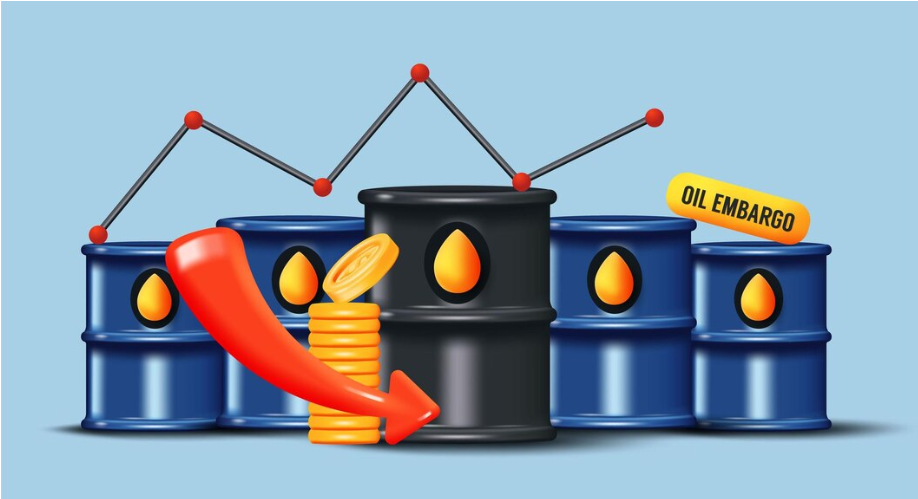Oil prices are in the spotlight – again. They’re up one day, down the next, and it seems like no one really knows what’s coming next. If you’re an investor, a trader, or just a curious consumer, you’re probably wondering why today’s oil prices are so unpredictable. And more importantly, what does it mean for your wallet or your investment decisions? Let’s dive into the factors driving these wild swings and what it all means for us.
The Many Factors Behind Unpredictable Oil Prices
Oil prices aren’t controlled by one thing – they’re influenced by a lot of different factors that all work together to create this “perfect storm” of unpredictability. Here’s a breakdown of some of the main players affecting oil prices right now.
1. Global Supply and Demand
At its core, the price of oil is all about supply and demand. When there’s more oil available than people need, prices drop. When there’s less oil available and everyone’s clamoring for it, prices spike.
- Supply Factors: This includes how much oil-producing countries, like Saudi Arabia and Russia, decide to pump out. Sometimes, they cut back to drive prices up; other times, they flood the market to drop prices.
- Demand Factors: Demand for oil goes up and down depending on things like economic growth and seasons. For example, during winter, demand for heating oil rises in colder countries.
2. Geopolitical Tensions and Oil Prices
Geopolitical issues are a huge factor in oil prices. When there’s tension or conflict in major oil-producing regions, people start to worry about supply disruptions.
- Middle East Conflicts: With so much of the world’s oil coming from the Middle East, any instability in that region can cause prices to jump as everyone worries about a possible shortage.
- Sanctions and Trade Restrictions: When big oil-producing countries face sanctions, their oil supply might get cut off from the rest of the world. This reduces global supply and drives prices up.
3. OPEC’s Influence on Oil Pricing
The Organization of Petroleum Exporting Countries (OPEC) plays a massive role in oil prices. OPEC consists of some of the biggest oil producers who meet regularly to decide on production targets. By reducing or increasing their output, they can make oil prices go up or down.
- Production Cuts and Increases: OPEC sometimes decides to cut production to drive up prices, which happened recently to counteract low demand during global lockdowns.
- Market Speculation: When OPEC hints at a production cut or increase, traders respond quickly, and prices move before any actual change in oil output happens.
Market Reactions and Oil Price Volatility
When all these factors combine, you get a lot of market uncertainty – and when markets are uncertain, prices become unpredictable. Here’s how market reactions come into play.
1. Speculative Trading
Traders often make decisions based on what they think will happen, not just on the current supply and demand. If they believe a country will cut production or a new conflict is about to start, they might buy up oil, causing prices to rise – even if nothing’s actually happened yet.
2. Media Hype and Market Perceptions
The media loves a good oil price story, and headlines can fuel price changes. When news reports hint at potential supply disruptions, panic buying can cause prices to shoot up.
- Influence of Media: With every rumor of a new conflict or economic crisis, the media covers it widely, affecting market perceptions. Many traders respond emotionally to this coverage, leading to quick price changes.
What Does It Mean for Your Investments?
If you’re someone who’s looking to invest, or if you’re just watching your fuel costs closely, today’s unpredictable oil prices have a real impact. Let’s explore what this means for investors, traders, and everyday consumers.
1. Impact on Investors and Traders
For traders and investors, oil’s unpredictable prices can mean both risks and rewards. If you’re able to predict price movements (even a little), there’s a lot of money to be made. But with unpredictability comes risk.
- High-Risk, High-Reward: Oil investments are highly volatile, meaning there’s potential for big gains but also for big losses. Many investors prefer to diversify to balance out the risk.
- Long-Term vs. Short-Term: Some investors might decide to hold onto oil investments for the long haul, betting that prices will rise over time. Others take advantage of short-term price swings.
2. Impact on Everyday Consumers
Oil prices affect almost everything we buy. Higher oil prices mean higher transportation costs, which can make groceries, clothing, and electronics more expensive. For people on tight budgets, even small increases in oil prices can make a big difference.
FXpricing: Your Tool for Tracking Oil Price Changes
If you’re looking to stay updated on oil prices or make investment decisions based on real-time data, FXpricing can help. FXpricing offers tools for tracking real-time prices, market analysis, and a customizable dashboard for staying on top of the latest trends in oil and other markets.
Key Features of FXpricing for Oil Tracking
- Real-Time Data: Get live updates on oil prices, forex, and commodities.
- Customizable Dashboards: Monitor oil alongside other assets you’re interested in.
- Market Analysis and News: Stay informed with market analysis and news updates to help understand what’s driving price changes.
Whether you’re an investor watching your oil stocks or a trader looking to capitalize on oil volatility, FXpricing provides the insights you need.
Personal Thoughts: Why Oil Prices Deserve Attention
From my perspective, keeping an eye on oil prices is more relevant now than ever. The market is incredibly unpredictable, and oil prices seem to impact everything, from how much we pay at the pump to how we invest our money. While the prices might seem confusing, taking the time to understand what drives them can really help. Even if you’re not a trader, being informed about oil’s impact on the economy helps you make better personal and financial decisions.
FAQs
Q: Why are oil prices so unpredictable?
A: Oil prices are influenced by multiple factors, including supply and demand, geopolitical tensions, and market speculation, making them highly volatile.
Q: How does OPEC influence oil prices?
A: OPEC controls a large portion of global oil production. By adjusting their output levels, they can impact global oil prices.
Q: Why should I care about oil prices as a consumer?
A: Oil prices affect transportation and production costs, which can impact the price of goods and services. Higher oil prices often mean higher costs for everyday items.
Q: How can I track oil prices effectively?
A: FXpricing offers real-time data and customizable tools for tracking oil prices and related market insights. It’s a great way to stay informed on price trends.Q: Is it wise to invest in oil during volatile times?
A: Oil investments can be risky due to their volatility. Some investors may find it profitable to trade on price fluctuations, but it’s best to assess your risk tolerance.



